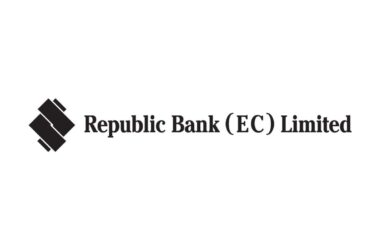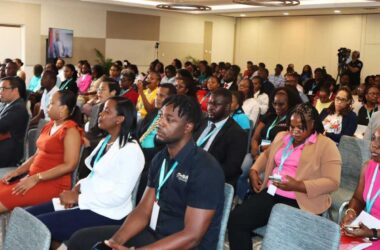
Dr Axel Kravatzky is the managing partner of TT-based Syntegra-360 Ltd, vice-chair of ISO/TC309 Governance of Organizations and president of EUROCHAMTT. He enables companies to flourish, helping them increase the sustainable value they generate through integrated governance, certified management systems, and transformational leadership.
THE path to sustainable development in the Caribbean must be closely connected with the principles of ethical business practices.
The Corruption Perception Index (CPI) 2023 offers a detailed look into how Trinidad and Tobago, Saint Lucia, Barbados, Jamaica, and Guyana fare in terms of corruption, thereby highlighting the critical need for ethical governance in fostering sustainable growth.
The CPI, by assessing public and private sector integrity, underscores the profound impact of corruption on economic stability, societal trust, and the broader developmental agenda.
CPI 2023: A Caribbean Analysis
Barbados leads within the Caribbean with a CPI score of 69 out of 100 followed by Saint Lucia with a score of 55. They exemplify the positive outcomes of concerted anti-corruption efforts. In contrast, Guyana’s score of 40 illustrates the challenges that persist in combating corruption effectively. Jamaica scores 44 and Trinidad and Tobago’s score stands at 42 in 2023.
These CPI scores are determined through a combination of surveys and assessments, reflect the perceptions of businesspeople and country experts on the perception of corruption. According to Transparency International which conducted this survey, over two-thirds of score below 50, which “strongly indicates that they have serious corruption problems”.
This insight is crucial, as it benchmarks the current state and can guide policy formulation. The corruption index serves as a risk assessment input and enables organizations to fortify their ethical business strategies and practices.
SDGs and Ethical Business
The United Nations’ Sustainable Development Goals (SDGs), particularly SDG 16, aim to “promote peaceful and inclusive societies for sustainable development,” with a specific focus on reducing corruption and bribery (Target 16.5).
This direct linkage between ethical business and the SDGs establishes a clear framework for countries and companies alike to integrate anti-corruption measures as a fundamental component of their sustainable development strategies.
The SDGs offer a global blueprint for progress, emphasizing that integrity and accountability in business practices are indispensable for achieving sustainable development.
IFRS S1 and ESRS G2: International ESG Frameworks prominently focus on Ethical Business Conduct
The International Financial Reporting Standards (IFRS) S1, developed by the International Sustainability Standards Board (ISSB), sets a new benchmark for sustainability-related financial disclosures and is likely to be adopted within Caribbean jurisdictions as well. It requires entities to provide comprehensive information about sustainability-related risks and opportunities, emphasizing the need for disclosures that are “comparable, verifiable, timely, and understandable.”
This standard aims to enhance transparency and shows clearly how sustainability issues impact an entity’s financial condition and operational resilience. It is an indicator that facilitates decision-making among investors.
Similarly, the European Sustainability Reporting Standard ESRS G2 on business conduct focuses on promoting transparency and accountability in business operations.
By requiring detailed disclosures on governance, ethics, and anti-corruption measures, ESRS G2 aligns corporate practices with the broader objectives of sustainable development, illustrating the value placed on ethical business by stakeholders globally.
National Adoption of ISO 37000 and ISO 37001
Disclosure standards do not specify how companies should make decisions or what governance and management systems they should introduce. That is where ISO standards come in. These are voluntary standards that companies can decide to adopt in order to make the best possible decisions in the interest of their organizations.
In 2022, ISO 37000 on governance and ISO 37001 on anti-bribery management were adopted as national standards in Trinidad & Tobago, Saint Lucia, and Jamaica.
These standards provide a comprehensive framework for organizations to enhance their governance structures and implement effective anti-bribery measures, to align with international best practices and reinforces the role of ethical business in achieving sustainable development.
SDG Impact Standards for Enterprises
The SDG Impact Standards for Enterprises offer a strategic approach for companies to align their operations and strategies with the SDGs.
These Standards emphasize the importance of integrating sustainable development goals into the core business strategy, thereby ensuring that companies not only contribute positively to global goals but also realize long-term value creation.
Through clear guidance on governance, management approach, and transparent reporting, the Standards encourage companies to operationalize their commitment to sustainable development and ethical practices.
Expanding Ethical Practices with ISO 37000 and ISO 37001
Using ISO 37000 and ISO 37001 as guides, organizations are able to:
1. Embed Ethical Governance: By establishing clear governance frameworks that prioritize ethical decision-making, companies can ensure accountability and transparency at all organizational levels.
2. Strengthen Anti-Bribery Efforts: Implementing comprehensive risk assessments, due diligence processes, and training programs as per ISO 37001 standards helps in mitigating bribery and corruption risks effectively.
3. Cultivate Integrity: Promoting a culture of integrity and ethical conduct across the organization fosters a positive business environment conducive to sustainable growth.
A Call to Ethical Action
The interdependence of ethical business practices and sustainable development is undeniable. The Caribbean, with its diverse economic landscape, stands at a crucial juncture where adopting and implementing international and national standards like IFRS S1, ISO 37000, and ISO 37001 can significantly impact its developmental trajectory.
By embracing these frameworks and the SDG Impact Standards for Enterprises, Caribbean businesses can lead the way in ethical governance, contributing to a sustainable, equitable, and prosperous future for the region and beyond.













